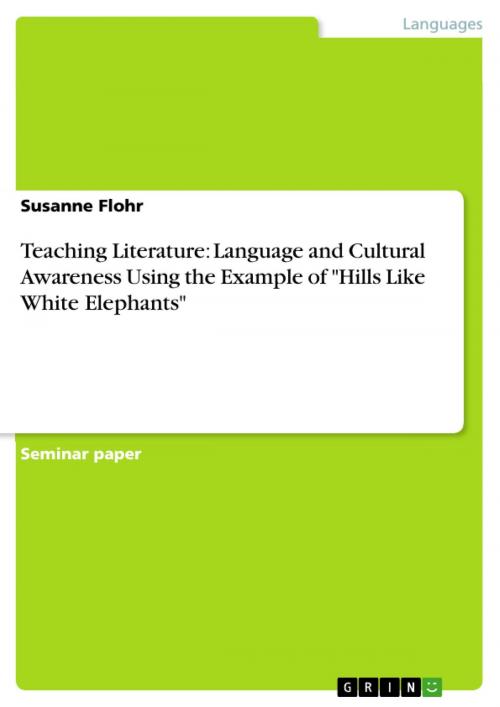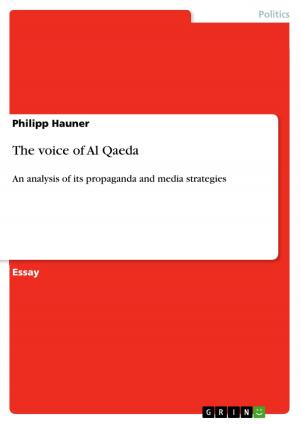Teaching Literature: Language and Cultural Awareness Using the Example of 'Hills Like White Elephants'
Fiction & Literature, Literary Theory & Criticism, British| Author: | Susanne Flohr | ISBN: | 9783640526529 |
| Publisher: | GRIN Publishing | Publication: | February 3, 2010 |
| Imprint: | GRIN Publishing | Language: | English |
| Author: | Susanne Flohr |
| ISBN: | 9783640526529 |
| Publisher: | GRIN Publishing |
| Publication: | February 3, 2010 |
| Imprint: | GRIN Publishing |
| Language: | English |
Seminar paper from the year 2007 in the subject English - Literature, Works, grade: 1,7, University of Kassel (Literature: Language and Cultural Awareness), course: Department of English & Romance Languages, language: English, abstract: This term paper will take several questions into account by starting off with a general definition of the terms 'Literature, Language and Cultural Awareness' as they are the basis for talking about literature and literary texts. Afterwards, a precise definition of the terms will follow before the consequences for the EFL classroom will be mentioned which lead to a text example that shows how one can teach the aspects that have been mentioned before and why it is important to teach students literature at all. The text shows that students need to understand other cultural backgrounds in order to understand the whole text since we do not have the expression 'hills like white elephants' in Germany. As a result, this text is a good example for showing how important language and cultural awareness are in order to understand literary texts in the EFL classroom. When we talk about literature in the EFL classroom, we should first of all ask ourselves what we need to take into consideration in general when we want to deal with literary texts in the EFL classroom. Some questions arise like why one should teach literature in the EFL classroom and what kind of literature needs to be taught. It is important to read literary texts in the EFL classroom because the curriculum says that teachers should deal with different countries and cultures by presenting people in real life situations. Therefore, they should mostly use authentic material in order to build a connection to the student's world. The teacher should be careful in choosing texts for the EFL classroom because the texts need to be suitable for the class in order to let the students work with them.
Seminar paper from the year 2007 in the subject English - Literature, Works, grade: 1,7, University of Kassel (Literature: Language and Cultural Awareness), course: Department of English & Romance Languages, language: English, abstract: This term paper will take several questions into account by starting off with a general definition of the terms 'Literature, Language and Cultural Awareness' as they are the basis for talking about literature and literary texts. Afterwards, a precise definition of the terms will follow before the consequences for the EFL classroom will be mentioned which lead to a text example that shows how one can teach the aspects that have been mentioned before and why it is important to teach students literature at all. The text shows that students need to understand other cultural backgrounds in order to understand the whole text since we do not have the expression 'hills like white elephants' in Germany. As a result, this text is a good example for showing how important language and cultural awareness are in order to understand literary texts in the EFL classroom. When we talk about literature in the EFL classroom, we should first of all ask ourselves what we need to take into consideration in general when we want to deal with literary texts in the EFL classroom. Some questions arise like why one should teach literature in the EFL classroom and what kind of literature needs to be taught. It is important to read literary texts in the EFL classroom because the curriculum says that teachers should deal with different countries and cultures by presenting people in real life situations. Therefore, they should mostly use authentic material in order to build a connection to the student's world. The teacher should be careful in choosing texts for the EFL classroom because the texts need to be suitable for the class in order to let the students work with them.















